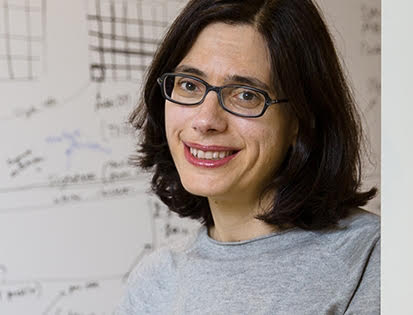 BY DR. LOUIS ALPERT
BY DR. LOUIS ALPERTOmbudsman
As an MIT alumnus and former mathematics instructor at the Institute, Ombudsman Alert has been granted permission from Editor David Rotman to quote directly from the most recent cover story of the MIT News, featuring Dr. Aviv Regev in the article “The Cartographer of Cells.”
“Aviv Regev helped pioneer single-cell genomics, now she’s co-chairing a massive effort to map the trillions of cells in the human body. Biology will never be the same!”
“Last October, Aviv Regev spoke to a gathering of international scientists at Israel’s Weizmann Institute of Science. For Regev, a computational and systems biologist at the Broad institute of MIT and Harvard, the gathering was also a homecoming of sorts. Regev earned her Ph.D. from Tel Aviv University in 2002.
Now, 15 years later, she was back to discuss one of the most ambitious projects in the History of Biology. This project, the ‘Human Cell Atlas,’ aims to create a reference map that categorizes all the approximately 37 trillion cells that make up a human!
“The cell atlas is often compared to the Human Genome Project, the monumental scientific collaboration that gave us a complete readout of human DNA, or what might be considered the unabridged cookbook for human life.
“In a sense, the atlas is a continuation of that project’s work. But while the same DNA cookbook is found in every cell, each cell type reads only some of its recipes–that is, expresses only certain genes, following their DNA instructions to produce the proteins that carry out a cell’s activities. The promise of the Human Cell Atlas is to reveal which specific genes are expressed in every cell type and where the cells expressing these genes can be found.
“Speaking to her colleagues at the meeting in Israel, Regev is co-chairing the Human Cell Atlas Organizing Committee with Sarah Teichmann of the Wellcome Trust Sanger Institute….This committee had been under way for a year, and Regev, an MIT Biology Professor who is also Chair of the Faculty of the Broad and Director of the Klarmann Cell Observatory and Cell Circuits Program, was reviewing a newly published paper detailing how the Human Cell Atlas is expected to change the way we diagnose, monitor and treat disease.”
Please address all comments and questions to: editor@rocklandcountytimes.com.

You must be logged in to post a comment Login